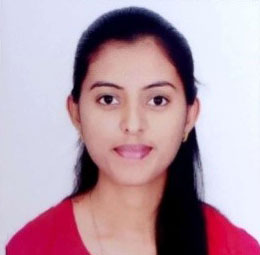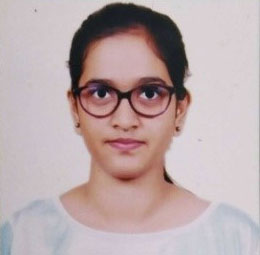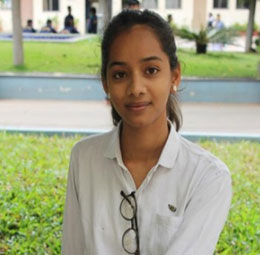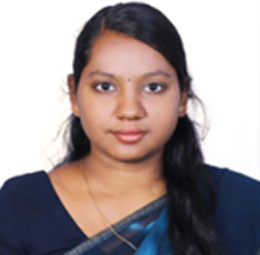Economics
- OVER VIEW
- PROGRAMMES
- CURRICULUM
- INFRASTRUCTURE
- FACULTY PROFILE
- STUDENTS PROFILE
- POs, Cos and PSOs
- CALENDAR OF ACADEMIC EVENTS
- ACADEMIC EVENTS
- RESEARCH
-
CO-CURRICULAR AND
EXTRACURRICULAR ACTIVITIES -
EXTENSION ACTIVITIES AND
OUTREACH PROGRAMMES - BEST PRACTICES
-
SOP MANUAL:
STANDARD OPERATING PROCEDURE - GALLERY
- PLACEMENTS
- PROMINENT ALUMNI
- EMINENT PERSONALITIES VISITED
- QUESTION BANK
- To sensitize students on current socio-economic and political issues.
- To impart critical thinking to the students and make fruitful contributions to nation-building.
To inculcate and equip students with both theoretical as well as practical knowledge
- Bachelor of Arts
Non-NEP
- History, Economics, Political Science
Eligibility : Pass in 2nd PUC / (10+2) Level
Course Duration: 3 years ( 6 Semesters )
NEP (Since 2021)
- History, Economics,\ Political Science, Economics
Eligibility : Pass in 2nd PUC / (10+2) Level
Course Duration: 4 years ( 8 Semesters )
- Completion of 2 Semesters – Certificate
- Completion of 4 Semesters – Diploma
- Completion of 6 Semesters – Bachelor’s Degree
- Completion of 8 Semesters – Honours
| Staff Room | 1 |
| Computer | 2 |
| Printer | 1 |
| Department Library | 1 |
| Internet Connection | 150mbps |
| Class | Girls | Boys | Total Strength |
| I BA (HE) | HE- 17 | HE- 8 | HE- 24 |
| II BA (PE) | PE- 12 | PE- 09 | PE- 21 |
| III BA (HEP) | HEP -18 | HEP – 25 | HEP – 43 |
| Class | Girls | Boys | Total Strength |
| I BA (PE) | PE- 12 | PE- 10 | PE- 22 |
| II BA (HEP) | HEP -18 | HEP – 25 | HEP – 43 |
| III BA (HEP) | HEP – 14 | HEP – 36 JPP – 04 | HEP – 50 JPP – 06 |
Bangalore City University Ranks
| Year | Student Name | Reg. No. | Percentage | University Rank |
| 2018-19 | Bindu R | 16AZA80005 | 85.46 | 05th Rank |
| 2020-21 | Aakanksha M | A1818601 | 88.32 | 09th Rank |
| 2021-22 | Prithi Honnareddy | A1918631 | 93.02 | 01st Rank |
| Manu R | A1918623 | 91.05 | 03rd Rank |
 Bindu R 05th Rank Bindu R 05th Rank 2018-19 |  Aakanksha M 09th Rank Aakanksha M 09th Rank 2020-21 |  Prithi Honnareddy 01st Rank Prithi Honnareddy 01st Rank 2021-22 |
 Manu R 03rd Rank Manu R 03rd Rank 2021-22 |
PROGRAMME OUTCOME-2022-23
By the end of the programme students will be able to:
PO1- The students acquire knowledge in the field of Social Science, Literature and
Humanities which make them sensitive and sensible enough
PO2- BA graduates will be acquainted with the Social, Economical, Historical, Geographical,
Political, Ideological and Philosophical traditions and thinking
PO3- The program also empowers the graduates to appear for various competitive examinations or choose the post-graduate programme of their choice
PO4- BA program enables the student to acquire knowledge with human values framing the best to deal with various problems in life with courage and humanities PO5- Programme provides the base to be a responsible citizen
PROGRAMME SPECIFIC OUTCOME:
PSO1- Understanding the origin and nature of economical activities
PSO2- Study and analyze economic activities in critical perspectives
PSO3- Have a better understanding of the working of various economic institutions
PSO4- Aware students about various economic problems causing because fluctuations in an economy
PSO5- Build ability among students to be in future as a economic advisers and policy makers
PSO6- Acquiring knowledge to take up various competitive exams related economics
PSO7- Build ability to perform as successful economic analysts
PSO8- Acquiring theoretical and empirical knowledge about the various concepts of economics
COURSE OUTCOME 2022-23
Title of the paper: of the paper: DSC 1.1. Economic Analysis -I
Course Outcomes :
CO.1 Identify the facets of an economic problem.
CO.2. Learn basic economic concepts and terms.
CO.3. Explain the operation of a market system;
CO.4. Analyse the production and cost relationships of a business firm;
CO.5 Evaluate the pricing decisions under different market structures; and
CO.6. Use basic cost-benefit calculations as a means of decision making (i.e., thinking like an
economist)
Title of the paper: DSC 1.2:Contemporary Indian Economy
Course Outcomes :
CO.1Understand the current problems of Indian Economy
CO.2 Identify the factors contributing to the recent growth of the Indian economy
CO.3 Evaluate impact of LPG policies on economic growth in India
CO.4 Analyze the sector specific policies adopted for achieving the aspirational goals
CO.5 Review various economic policies adopted
Title of the paper :: DSC 2.1: Economic Analysis-II
CO 1. Understand the operation of the overall economic system;
CO 2. Calculate national income and related aggregates
CO 3. Explain the relationship between macroeconomic aggregates;
CO 4. Analyse the nature of business cycles and policies towards controlling them:
CO 5. Evaluate the macroeconomic policies for solving major problems like poverty and unemployment
Title of the paper : DSC 2.2:Karnataka Economy
- Understand the nature of economic growth and problems of Karnataka state.
2, Explain the process of structural growth in Karnataka economy:
- Evaluate the policies and programmes undertaken by the Govt. of Karnataka for bringing about socio-economic development
Course Title: DSC-3.1 Microeconomics
Course Outcomes
CO1. Understand introductory economic concepts.
C02. Recognize basic supply and demand analysis
CO3. Recognize the structure and the role of costs in the economy
CO4. Describe, using graphs, the various market models: perfect competition, monopoly, monopolistic competition, and oligopoly
CO 5. Explain how equilibrium is achieved in the various market models
CO 6. Identify problem areas in the economy, and possible solutions, using the analytical tools developed in the course.
Course Title: DSC-3.2.2Agriculture Economics
Course Outcomes (COs)
CO01. Acquire knowledge of the role of agriculture in economic development
C02. Acquire the theoretical and application knowledge of agricultural growth and
development
CO3. To enable the students to understand the Strategy of Agricultural Development in India,
CO4. To make the students aware of institutional and non-institutional sources of agricultural Finance
Title of the paper: DSC-4.1 Macroeconomics
Course Outcomes :
CO1: Acquire knowledge on the circular flow of income in two sectors, three and four-sector model
CO2: Understand and learn the calculation of national income
CO 3: Appreciate the classical and Keynesian theory of Employment
CO 4: Understand the concepts of multiplier and accelerator and leaning the simple
Calculation on the working of Multiplier and Accelerator
CO 5: Acquire knowledge of the determinants of the Investment function
Title of the paper: DSC-4.2.1 Statistics for Economics
Course Outcomes
CO1.understand the nature of Data and their presentation
CO2.Calculate Descriptive statistics like measures of central tendency and dispersion
CO3.Apply statistical techniques like correlation and regression in Economic analysis
Title of the paper: INDIAN ECONOMICS
Course Outcomes:
- 1 Students will know the Indian Economy during the Pre-British rule, British Rule and at the time of India’s Independence
CO.2Critical understanding of the impact of reforms on agriculture, industry and services
CO.3Understand the Importance and role of the Services Sector in India’s economic development
Title of the paper: Environmental Economics
Course Outcomes:
CO.1 Good acquaintance with the concepts, tools, and issues in Environmental Economics
CO.2Understanding the power of market, market failure and markets for the environment
CO.3Understand the economics of sustainable development
Title of the paper: International Trade Theory & Policy
Course Outcomes:
CO.1Good acquaintance with the concepts, and theories of international trade
CO.2Understanding the Importance of international trade
CO.3Acquaintance with the foreign exchange and balance of payments
CO.4Understanding the origin, structure and function of International monetary institutions
and India’s relation with them
Title of the paper: Human Resource management
Course Outcomes:
CO.1 Good acquaintance with the fundamentals of HRM
CO.2 Understanding the vital aspects of HRP
CO.3 Acquaintance with the need and significance of Appraisal
CO.4 Understanding the difference between 1Q and EQ as well as need of the Time
CO.5 Management and Stress Management
Department of Economics 2018-23 Calendar of Events
| Sl. No. | Date | Particular |
| 1. | 03-10-2018 | One day State level workshop on Constitutional Amendments economic and legal issues |
| 2. | 15-04-2019 | Group Discussion on Rural Development |
| 3. | 02-05-2019 | Student Seminar Competition |
| 4. | 29-08-2019 | Commencement of Color week |
| 5. | 03-10-2019 | Kalakruti Club Inauguration |
| 6. | 03-10-2019 | Guest Lecture on Economic Slowdown – Causes and Measure |
| 7. | 26-10-2019 | Oratory Competition |
| 8. | 29-10-2019 | Quiz Competition |
| 9. | 02-11-2019 | Essay Competition |
| 10. | 22-01-2020 | Value Added Course Commencement (Aptitude and Analytical Training) |
| 11. | 23-01-2020 | Swachchata Pakwada Rally & Street Play |
| 12. | 16-02-2020 | Socio-Economic Survey |
| 13. | 06-02-2020 | Career Enhancement Programme |
| 14. | 18-02-2020 | Ethnic Day |
| 15. | 03-06-2020 | Elocution Competition |
| 16. | 05-06-2021 | Environment Protection Awareness Video by students |
| 17. | 09-08-2021 | One Day Interactive Workshop on “Indian Economy-Since Independence” |
| 18. | 14-09-2021 | National Level Workshop on The Scientific Need for Sustainable Co-operative Farming |
| 19. | 30-09-2021 | Commencement of UGC STRIDE MRP |
| 20. | 11-11-2021 | Visit to GKVK |
| 21. | 26-01-2022 | Quiz Competition to commemorate International Custom Day |
| 22. | 08-03-2022 | Rally and Visit to Police Station Rajajinagar Bangalore on account of International Women’s Day |
| 23. | 26-03-2022 | Quiz Competition to commemorate World Consumer Rights Day |
| 24. | 06-06-2022 | Environmental Sustainability and Economic Growth |
| 25. | 08-07-2022 | Ethnic Day |
| 26. | 14-08-2022 | Quiz Competition on Indian Economy |
| 27. | 07-11-2022 | Orientation Programme |
| 28. | 17-12-2022 | Inter Class Debate |
| 29. | 09-01-2023 | Oratory Competition on account of National Youth Day |
| 30. | ||
| 31. | 16-01-2023 | Suggi celebration |
| 32. | 14-07-2023 | Socio-Economic Survey |
| 33. | 20-07-2023 | Product Launch Competition |
Academic events:
|

